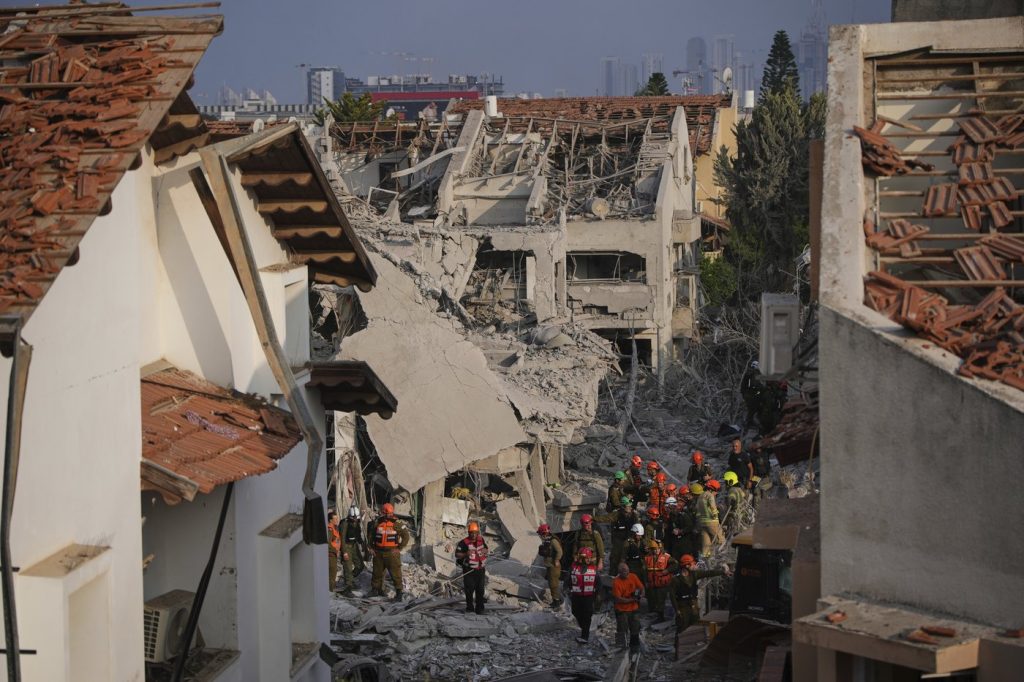On Saturday morning, Iran retaliated against Israel with missile strikes, resulting in at least three fatalities and dozens of injuries. This response followed a series of intensive attacks by Israel on Iran’s nuclear facilities and military personnel. Reports indicate that Israeli forces utilized warplanes and pre-smuggled drones to target essential infrastructure and eliminate prominent Iranian generals and scientists.
Israeli officials characterized the strikes as a preemptive measure to impede Iran's progress toward developing an atomic weapon, despite assessments from experts and the U.S. government suggesting that Tehran was not actively pursuing such a weapon prior to the assaults. The situation has exacerbated diplomatic tensions, notably disrupting ongoing negotiations between the United States and Iran regarding nuclear agreements, just days before a scheduled meeting on Sunday.
Casualties from the attacks include a woman reported dead in Tel Aviv, according to a spokesperson from Beilinson Hospital. This incident contributes to the total death toll from Iranian missile strikes, which now stands at three. In addition, the hospital reported seven injuries resulting from early Saturday’s attack, with reports indicating that a missile hit a residential building in the city.
The Israeli paramedic service, Magen David Adom, confirmed that a missile strike in central Israel resulted in two fatalities and 19 injuries during the early hours of Saturday. Dwellings were severely damaged due to the missile strikes, according to Israel's Fire and Rescue Services.
In reaction to the escalating violence, UN Secretary-General Antonio Guterres called for an immediate halt to the attacks between Israel and Iran, emphasizing the necessity for diplomatic solutions. In a statement on social media, he urged for an end to the hostilities, emphasizing that “peace and diplomacy must prevail.”
Reports from Iranian media revealed a fire at Tehran’s Mehrabad International Airport, with the semi-official Tasnim news agency sharing footage depicting smoke and flames. Additionally, a subsequent wave of Iranian missile attacks led to minor injuries in Israel, with Ichilov Hospital treating seven individuals, six with light injuries and one with moderate wounds. Explosions, potentially from Israeli missile interceptors, were heard in the skies over Jerusalem and Tel Aviv early Saturday.
According to Associated Press journalists in Tel Aviv, at least two Iranian missiles were observed impacting ground targets; however, no immediate casualties were reported from this second wave of attacks. The Israeli military alerted civilians, who were already shaken from the initial strikes, to seek shelter, indicating that around three dozen people had sustained injuries from the first barrage.
In Tehran, the sound of explosions and the firing of Iranian air defense systems could be heard throughout the capital, indicating ongoing military activity in response to Israeli actions. Air raid sirens were also reported near the home of an Associated Press reporter in the city, highlighting the tensions and chaos unfolding amid the conflict.











